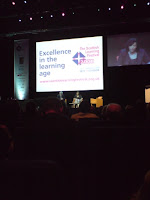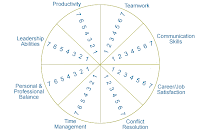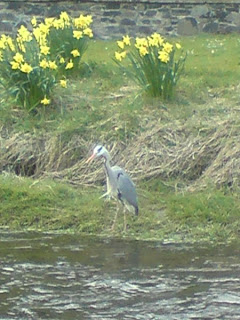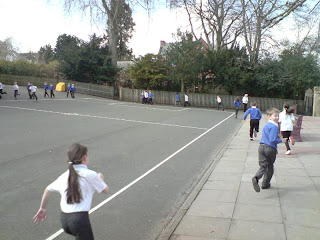 I listened to a programme on the radio yesterday that had me gritting my teeth, shouting at the radio and then vainly trying to find a feedback mechanism. Not good for my blood pressure at the end of a tranquil holiday. The presenter was trying to answer the question “Are Scotland’s schools really better than England’s?” You can listen to it here for the next 7 days.
I listened to a programme on the radio yesterday that had me gritting my teeth, shouting at the radio and then vainly trying to find a feedback mechanism. Not good for my blood pressure at the end of a tranquil holiday. The presenter was trying to answer the question “Are Scotland’s schools really better than England’s?” You can listen to it here for the next 7 days.
A long list of contributors were consulted: Pete Main a Maths teacher from Perth, and previously Tooting, who had therefore taught in both systems; Sarah Atkin, a parent of a 9 year old at a school in the Black Isle; Linda Croxford from the Centre for Educational Sociology, Edinburgh University; Brian Boyd, Professor of Education at Strathclyde University; Tom Miers of the Policy Institute; and James Stanfield, Author of How Good are Scotland’s Schools? Evidence from Home and Abroad, Policy Institute, Edinburgh March 2007.
The Policy Institute is a Charity that says it is an independent body committed to researching how liberal principles of market economics, the rule of law and limited government can be applied to modern Scotland. The contributions from its Executive Director Tom Miers and the author of a report it published, James Stanfield, vigorously promoted their view that an industry model could be applied to education, and justified it by pointing to statistics showing an apparent downturn in Scotland’s exam performance compared with an upturn in England’s, despite a monetary investment 3 times that of England's. Insultingly, James Stanfield thought that the Scottish Educational establishment would reject this or any particular philosophy simply because it was used in England. And he accused it of complacent protectionism instead of being open to alternative ideas. He proposed allowing anyone from anywhere to set up a school, its success to be judged by the number of pupils it could attract.
It was the rather aggressive, unpleasant face of consumer-led models. I quote from their website: "The Policy Institute was founded in 1999 and is registered as a charity (No. SC029012). As such it is entirely independent of the political process and has no party affiliation" Google tells me that a Tom Miers was a Conservative candidate in the Caithness Sutherland and Easter Ross constituency and placed 4th in the 1997 General Election, with a mere 10% of the vote. Presumably it's not the same Tom Miers? Otherwise you'd have to question the group's score on their "independence" performance indicator.
The easy, lazy measure of schools' goodness which they had used was exam performance. They were not prepared to consider whether that was a valuable or even particularly illuminating measure. (After all how could you make a graph to show improvements in creativity or social awareness?) They drew the conclusion that English schools were doing better because their SATs results were improving. (Doesn’t it just mean that English teachers are getting better at knowing what their children need to do to pass tests? And how valid is the thought that if a company has to compete against others to win a tender process to provide an exam system, it's not going to get picked again if it gives poor results, is it? )
Those interviewed who were actually involved in Education, ie all the other contributors, thought that the Scottish system was better, despite its shortcomings. Pete Main felt that Education was less of a political football than in the south. He felt there was less pressure than with SATs and he felt more respected in Scotland. Sarah Atkins,the parent, though satisfied with the education her child was receiving and impressed with the quality of new teachers, complained that there wasn’t enough accountability in Primary Schools. She only knew as much as she did (not a lot) about the Curriculum for Excellence because she had “taken the trouble” to find out.
Brian Boyd, as usual, stuck up for us valiantly. He made the case for Intelligent Accountability. He agreed that of course we should energetically address the gap of opportunity between the classes highlighted in the OECD PISA report. But he spoke of Scotland’s high status and broad outlook on what education is. He wasn’t really given space to answer James Stanfield’s assertion that we are failing in the main purpose of school which he considers is to teach people to read and write. But Brian Boyd did get a chance to say that trust is the most important element of intelligent accountability.
For a good talk on the subject of trust and accountability, and an appeal for a system that measures what we value, not one that values what we can measure, look here.













































